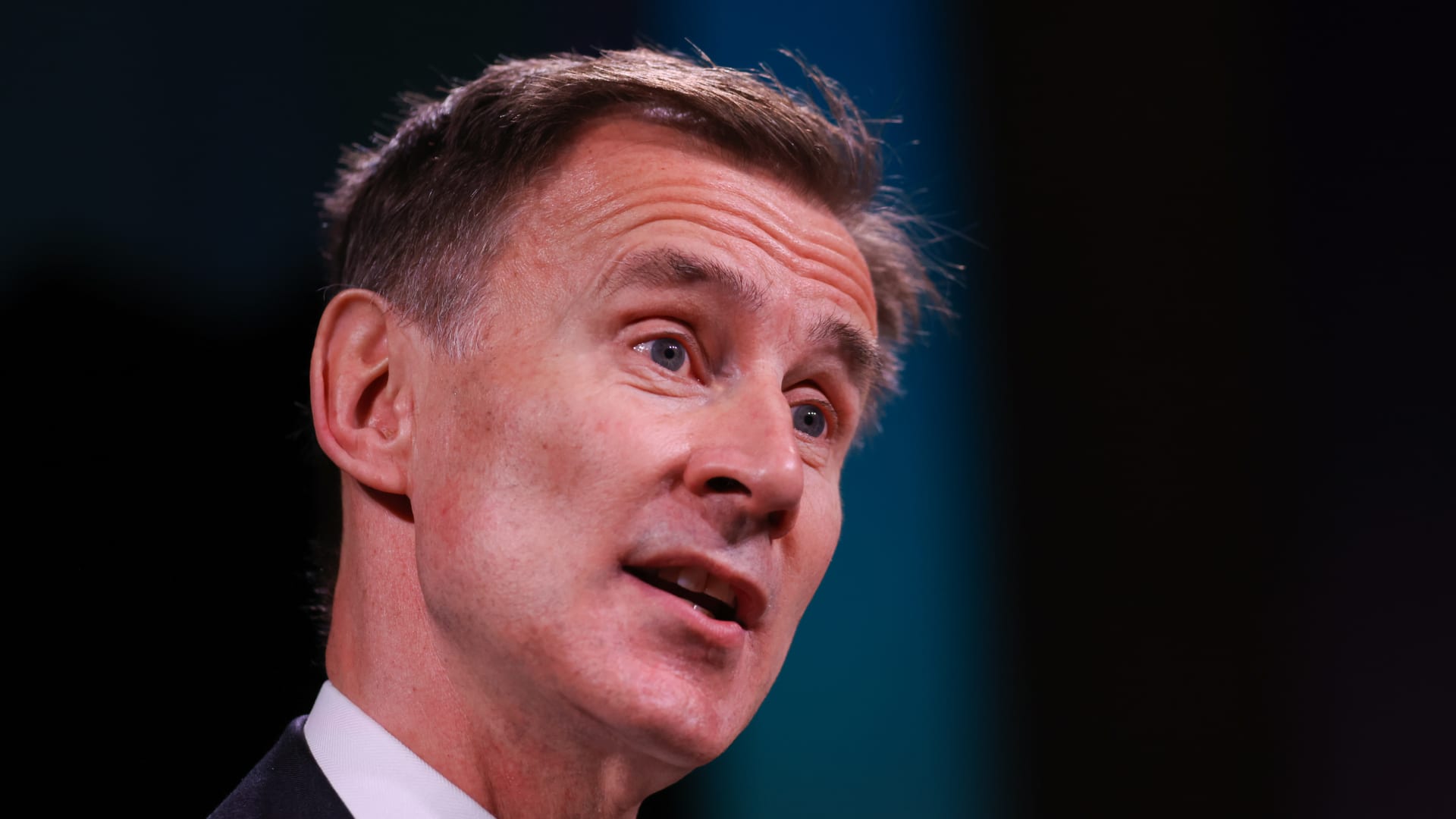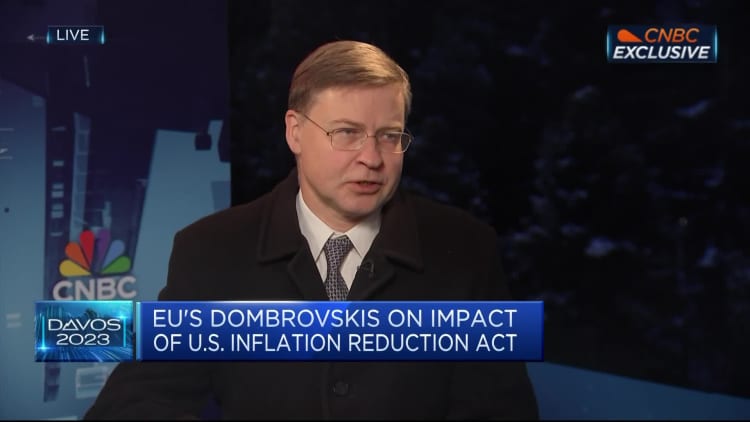British finance minister sticks to tax-hiking plans, pledges post-Brexit reforms
British Finance Minister Jeremy Hunt on Friday signaled he is pushing ahead with tax hikes, while stressing the need to make Brexit a "catalyst" for U.K. growth.

Jeremy Hunt gave a speech Friday to lay out plans for economic growth in the U.K.
Bloomberg / Contributor / Getty Images
LONDON — British Finance Minister Jeremy Hunt on Friday signaled he is pushing ahead with tax hikes, while stressing the need to develop Brexit into a "catalyst" for U.K. growth.
"The best tax cut right now is a cut in inflation," Hunt said in a speech addressed to tech giants, including Amazon, Google and Meta, as he looks to dispel economic "gloom" in the U.K.
Optimism in the U.K. economy has been in "short supply" in recent months, Hunt said.
Hunt told companies that they were important for the U.K. outlook, but added that "Britain is vital for your future too" and asked for their help to make the country "the world's next Silicon Valley."
Graph to show how pound sterling moved as Jeremy Hunt spoke.
The Finance Minister stressed the importance of making the U.K. a place where companies want to do business.
He underscored that Britain needs to have "nothing less than the most competitive tax regime of any major country," despite restoring the planned rise in corporation tax from 19% to 25% after it was scrapped by former Finance Minister Kwasi Kwarteng.
Hunt's latest comments were more about improving the image of Britain's economic circumstances than about supplying new policies, according to Susannah Streeter, senior investment and markets analyst at Hargreaves Lansdown.
''Jeremy Hunt shrugged off his firefighter image for that of a construction worker, determined to help rebuild Britain's economy. But there is no quick dry concrete available to provide an immediate solution to the stagnation the UK is languishing under," Streeter wrote in an analyst note.
Detail is "sorely lacking," she added, saying "the architects of this plan clearly unsure how it will be paid for."
The British pound was down 0.25% against the dollar, hitting $1.237 following the speech. It recovered some of its losses from when Hunt began speaking, but pulled away from the six-week high struck on Thursday.
Hunt's speech comes as the U.K. inflation rate most recently reached 10.5% in December, well above the Bank of England's target of 2%. The bank next meets to decide monetary policy on Feb. 2.
U.S. Inflation Reduction Act concerns
Jeremy Hunt said the U.K. government has "some concerns" about the U.S. Inflation Reduction Act in a Q&A session that followed his speech Friday.
The controversial Inflation Reduction Act is a historic climate and tax deal that would channel billions of dollars into programs designed to tackle climate change and speed up the U.S. transition to net-zero carbon emissions.
"We believe in free trade, and we believe that if we're going to get to net-zero, which is extremely important, we will be more effective if we exploit the competitive advantage that we have, that the United States has, that Asian countries, that EU countries have," Hunt said, alluding to concerns expressed on Jan. 19 by European commissioner for trade, Valdis Dombrovskis, that the act's measures were "discriminating against EU companies."
"Are we worried about the long term future of our clean energy industries? Absolutely not," Hunt added.

Hunt's comments echo those of his German counterpart Christian Lindner, who told CNBC that he is "concerned about the consequences due to the Inflation Reduction Act" in November.
"Our common approach should be that value partners should stay preferred trade partners," he said.

 Troov
Troov 
































